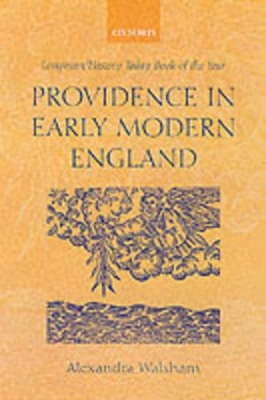Providence in Early Modern England is the most extensive study to date of the sixteenth- and seventeenth-century belief that God actively intervened in human affairs to punish, reward, warn, try, and chastise. Providentialism has often been seen as a distinctive hallmark of puritan piety. However, Dr Walsham argues that it was a cluster of assumptions which penetrated every sector of English society, cutting across the boundaries created by status and creed,
education and wealth. She explores a range of dramatic events and puzzling phenomena in which contemporaries detected the divine finger at work: tragic accidents and sudden deaths, strange sights and mysterious portents, monstrous births and popular prophets, terrible disasters and raging epidemics. She
shows how providence helped forge a powerful myth of Protestant nationhood and a lively sense of confessional identity and how, simultaneously, it exacerbated the political and ecclesiastical tensions which culminated in the outbreak of the civil wars in 1642.
Framed as a contribution to the continuing debate about the impact, character, and broader repercussions of the English Reformation, this book seeks to deflect attention away from the negative and iconoclastic aspects of the advent of Protestantism towards the undercurrents of continuity that eased the enormous upheavals of the era. It highlights some of the ways in which people adjusted to the religious and cultural revolution as a permanent fact. Based on a detailed analysis of sermons and
tracts published by Protestant ministers, and ballads and pamphlets reporting 'true and wonderful newes', it also sheds light on the role of literacy and print in a society in which oral and visual modes of communication continued to thrive.
- ISBN10 0198208871
- ISBN13 9780198208877
- Publish Date 25 January 2001 (first published 2 September 1999)
- Publish Status Active
- Publish Country GB
- Imprint Oxford University Press
- Format Paperback
- Pages 406
- Language English
